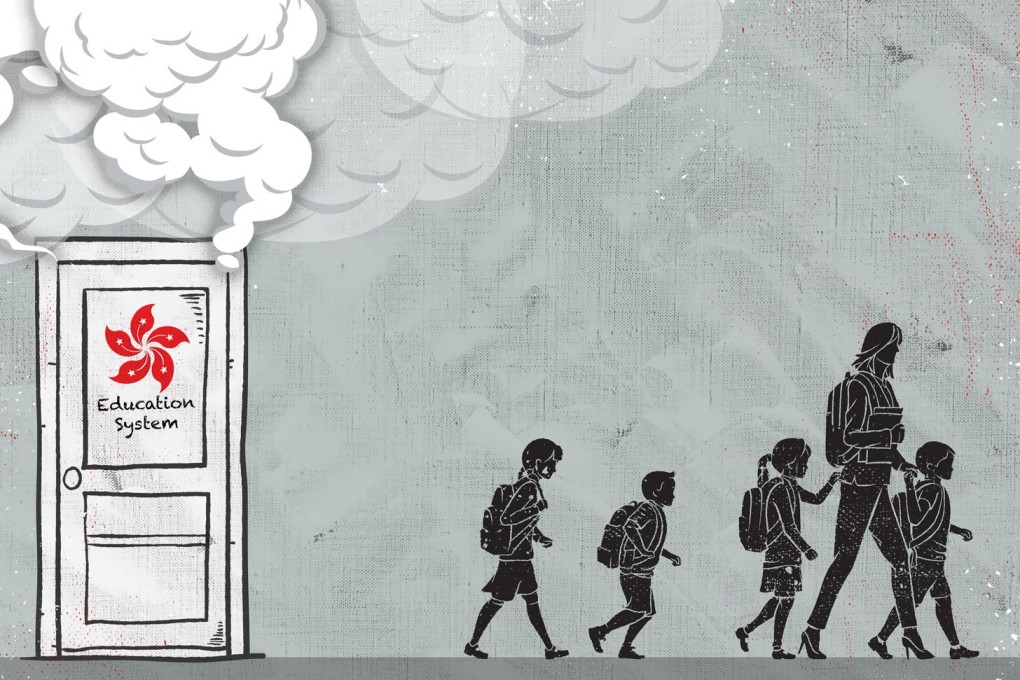Why Hong Kong’s protests are pushing some Chinese parents to pull their children from the city’s schools
- Thousands of children make the daily journey from Shenzhen to classrooms across the border but unrest in the city has prompted some families to consider other options
- Tensions over political differences are raising concerns about the future of education in the city

The turmoil compounded concerns that her six-year-old son would be taught – in her words – “from biased textbooks and by teachers prejudiced against the Chinese mainland”.
As a result, she decided to give up her son’s place at a top-ranking primary school in Tai Po and send him to a private boarding school in Shenzhen.
“There are 28 years to go until 2047, when Hong Kong’s separate system ends, but how can my son wait for 28 years to finally get an objective understanding of China?” Wen said.
“I am more confident in the development of Shenzhen and I think my son needs to be part of the city from the time he is young.”
Until this summer, Wen’s son – whose father is from Hong Kong – was one of nearly 30,000 children who cross the border each day from Shenzhen to go to school in neighbouring Hong Kong.
The phenomenon emerged in the 1980s and continued for about two decades as cross-border marriages flourished.